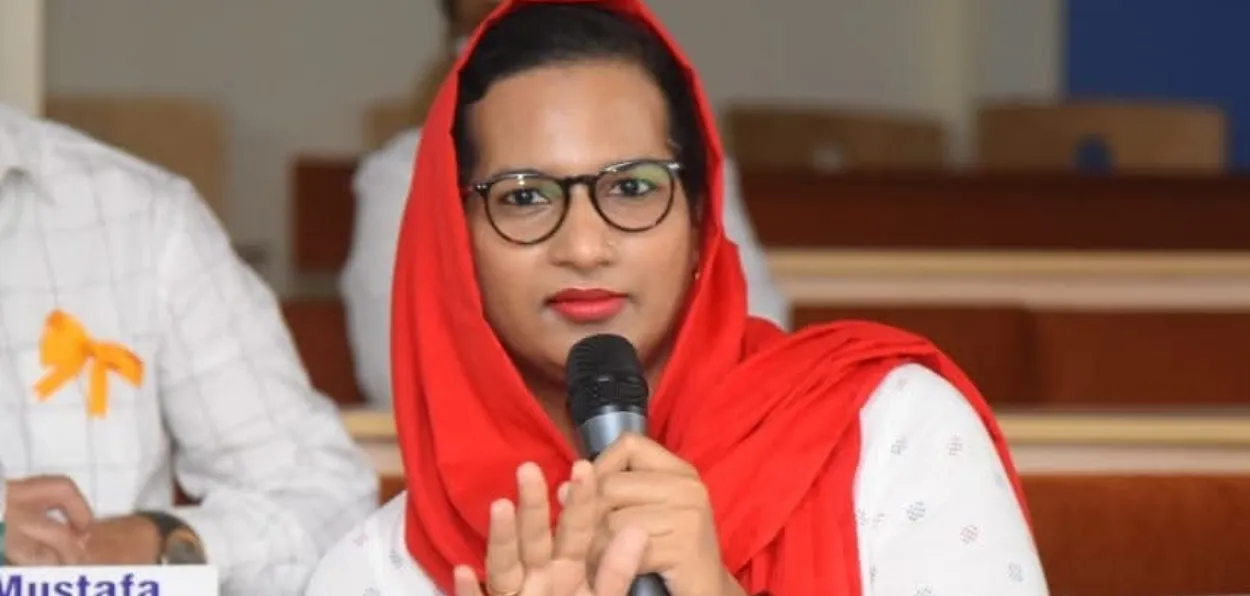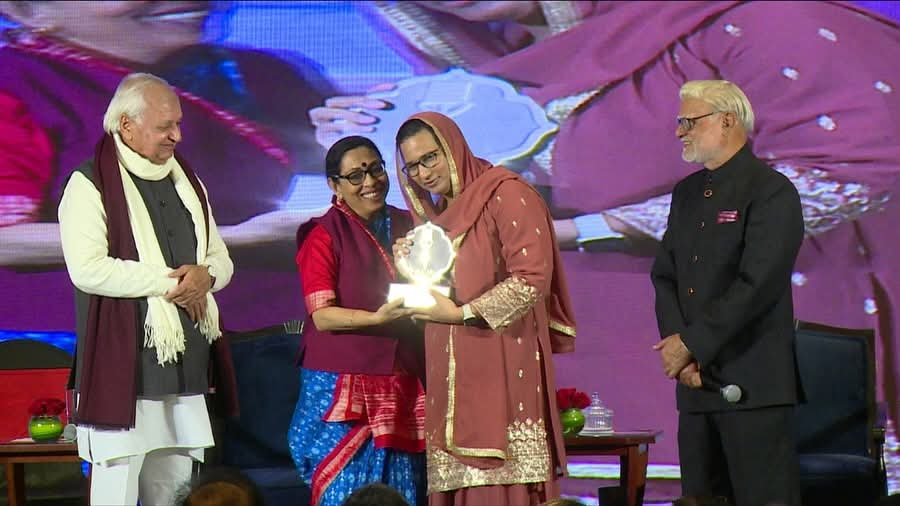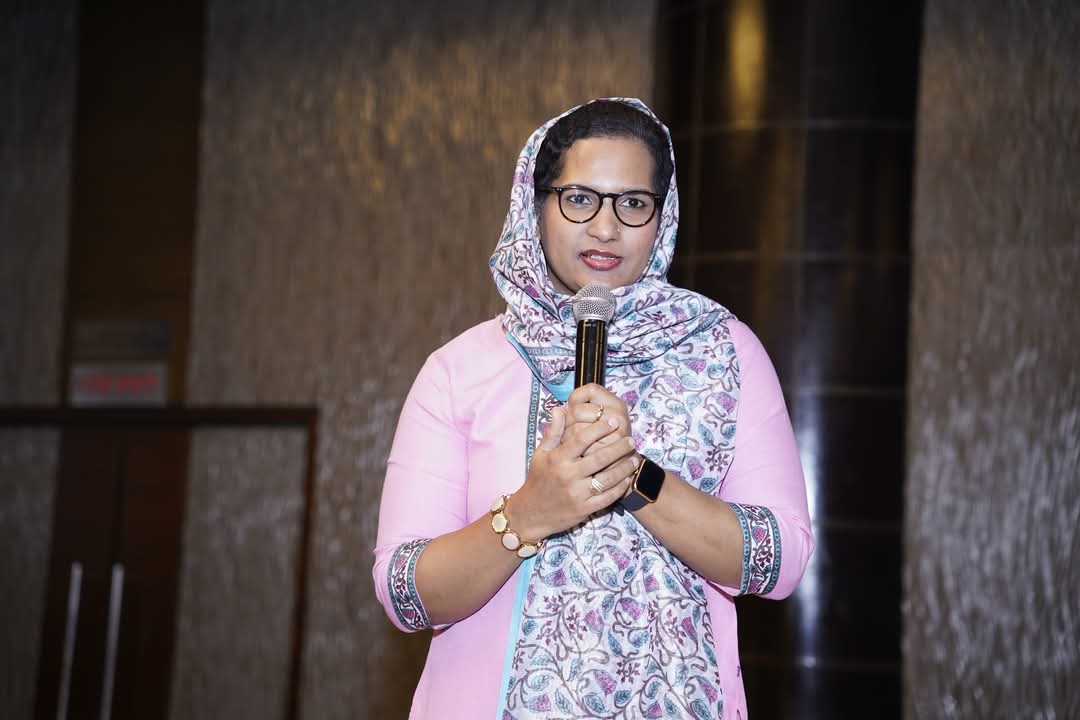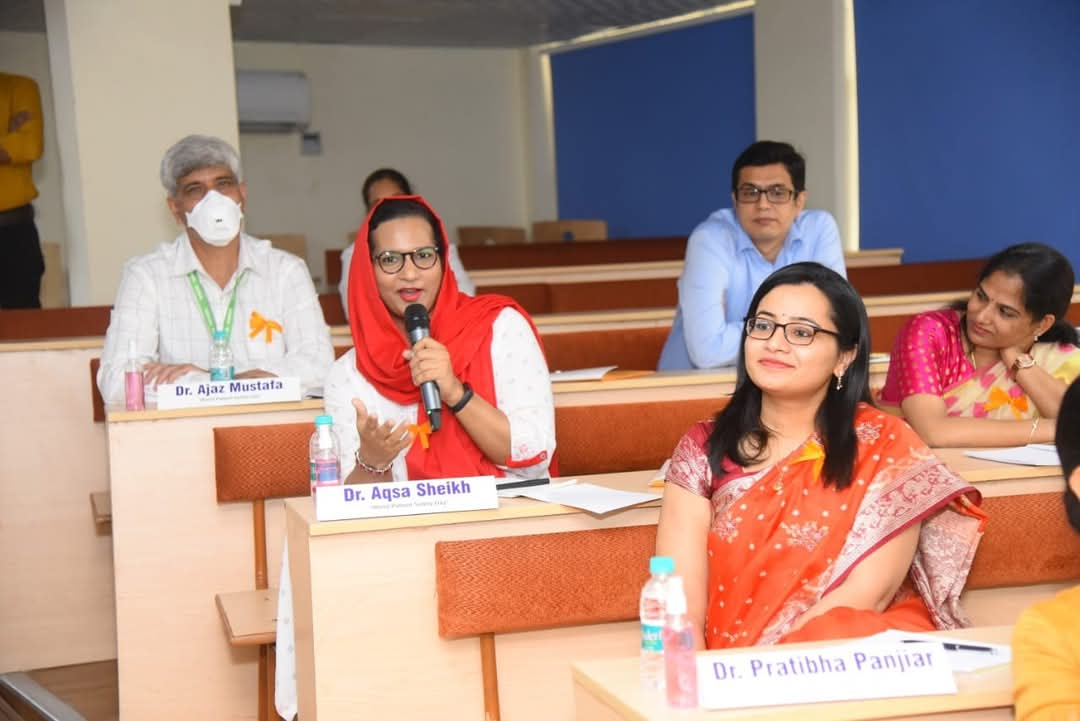
Tarique Anwar/New Delhi
Dr. Aqsa Shaikh has been playing the role of a changemaker in normalising the existence of the queer persons in society - from becoming the first trans-woman to head a COVID-19 vaccination center to working with national medical institutions like ICMR and AIIMS, her efforts are focussed on furthering her mission.
Through her organization, the Human Solidarity Foundation, she works on food security, medical curriculum reforms, and ethical research frameworks for trans and intersex people. But her mission has not yet been accomplished.
As a professor of community medicine at Hamdard Institute of Medical Sciences and Research, Dr. Aqsa is leading a silent revolution in changing the system, which, “excluded” people like her when it came to even making decisions about their health.
“We need to see the queer community not just as recipients of healthcare but also as health providers — as doctors, nurses, caretakers and also as teachers, researchers and students in medical education,” she tells Awaz-The Voice.
 Dr. Aqsa Shaikh receiving an award for her pioneering work
Dr. Aqsa Shaikh receiving an award for her pioneering work
From childhood bullying in Mumbai to being diagnosed with gender identity disorder at 17, her life journey has been shaped by alienation. “I had no friends: I had a traumatic childhood,” she recalls.
The reaction from her family was equally harsh. “I was stopped from cooking. I was told marriage was the only solution to my plight,” she says, adding she was devastated when she was asked to cut off her ties with her beloved nephew. “That was soul-crushing,’’ she says.
At 28, she left Mumbai to settle in New Delhi as “the torture was unbearable,” she says. It was here that she began hormone therapy and, despite her mother’s protests, underwent breast implant surgery. “I told my mother if I do not do it, I will die,’’ she recounts.
Affirming one’s gender identity, according to her, is not a luxury but a necessity — and sometimes, a matter of life and death.
The transition is not easy. “I came to discover my identity as a trans-person during medical college… and I couldn’t even talk about my identity,” she says.
 Dr Aqsa Shaikh
Dr Aqsa Shaikh
Dr Aqsa says the 'don’t ask, don’t tell' mentality still echoes in India’s hospitals, often leading to misdiagnosis. Recalling one such incident from the early days of COVID-19 pandemic, when her breast implants were mistaken for pneumonia on an X-ray, she says, “Fortunately, the head of the department knew about my implants and he realised the issue.”
“Sometimes in the ‘don’t ask, don’t tell’ attitude, we fail to ask the right questions and end up making misdiagnosis or mistreatment,” she points out.
Dr Aqsa is determined to replace silence with visibility, and grey areas with clarity.
Transgender individuals are often excluded from vaccine trials, including during the COVID-19 pandemic. “The medical fraternity treats them as a vulnerable group that needs to be protected,” she explains. “This protectionist approach leads to an exclusion of a group that needs more attention.”
Other oversights go unnoticed until they turn dangerous. “For blood hemoglobin count, there are different normal ranges for cis-gender men and women.
However, we have not yet studied what is the normal range for trans-men,” she says. “Similarly, in renal function tests of kidneys, the values are different for men and women, but what is the normal value for trans and non-binary individuals?”
She says it is not just about the data, but about how bodies that are not considered “normal” are treated.
Aqsa asks: “In the anatomy class of MBBS course, have you ever come across a cadaver of a trans person, or a person with a disability?”
 Dr Aqsa Shaikh with medical fraternity
Dr Aqsa Shaikh with medical fraternity
This erasure begins early. She says school textbooks still refer to intersex people using derogatory terms. According to her, worse and unnecessary surgeries are performed on intersex infants to make their bodies conform to male or female norms.
“A central committee was formed to frame guidelines regarding this, but the committee never met in the last two years!” she exclaims. After filing a petition with the Delhi Commission for Protection of Child Rights, Dr Aqsa and her colleagues successfully ended such surgeries in government hospitals in Delhi. “A nationwide ban is much needed,” she says.
The issue of care for trans-adolescents is another complex frontier. With Indian laws currently classifying the administration of hormones to minors as a potential sexual offense, many endocrinologists avoid giving puberty blockers — even when they can be life-saving.
“Pubertal delayers can help avoid dysphoria (unease with life), inducing changes in the body during puberty,” Dr. Aqsa says that further research was crucial to establish safe, ethical guidelines. “In the vast majority of cases, the gender that a person identifies with at the age of 10 remains the same at 18,” she says.
The contradiction between being “politically correct” and “medically correct” is another minefield. “Some advocates say: ‘If you are a trans-woman, you are a woman.’ But if a trans woman has a prostate, it can develop prostate cancer,” Aqsa explains. “In affirming her woman-ness, we need to be careful not to erect a new barrier for this trans-woman to access correct healthcare.”
Despite her mammoth work for reform, Dr Aqsa acknowledges the intersectional challenges of being both a Muslim and a trans-person.
ALSO READ: Waqf Law ushers in transparency, accountability, inclusivity
Her dream is to see that no trans-child has to choose between identity and acceptance; between life and dignity. “What level of control parents should have regarding medical interventions on their child is an active debate,” she says, quoting Khalil Gibran: “Your children are not your children, they are God’s children.”
